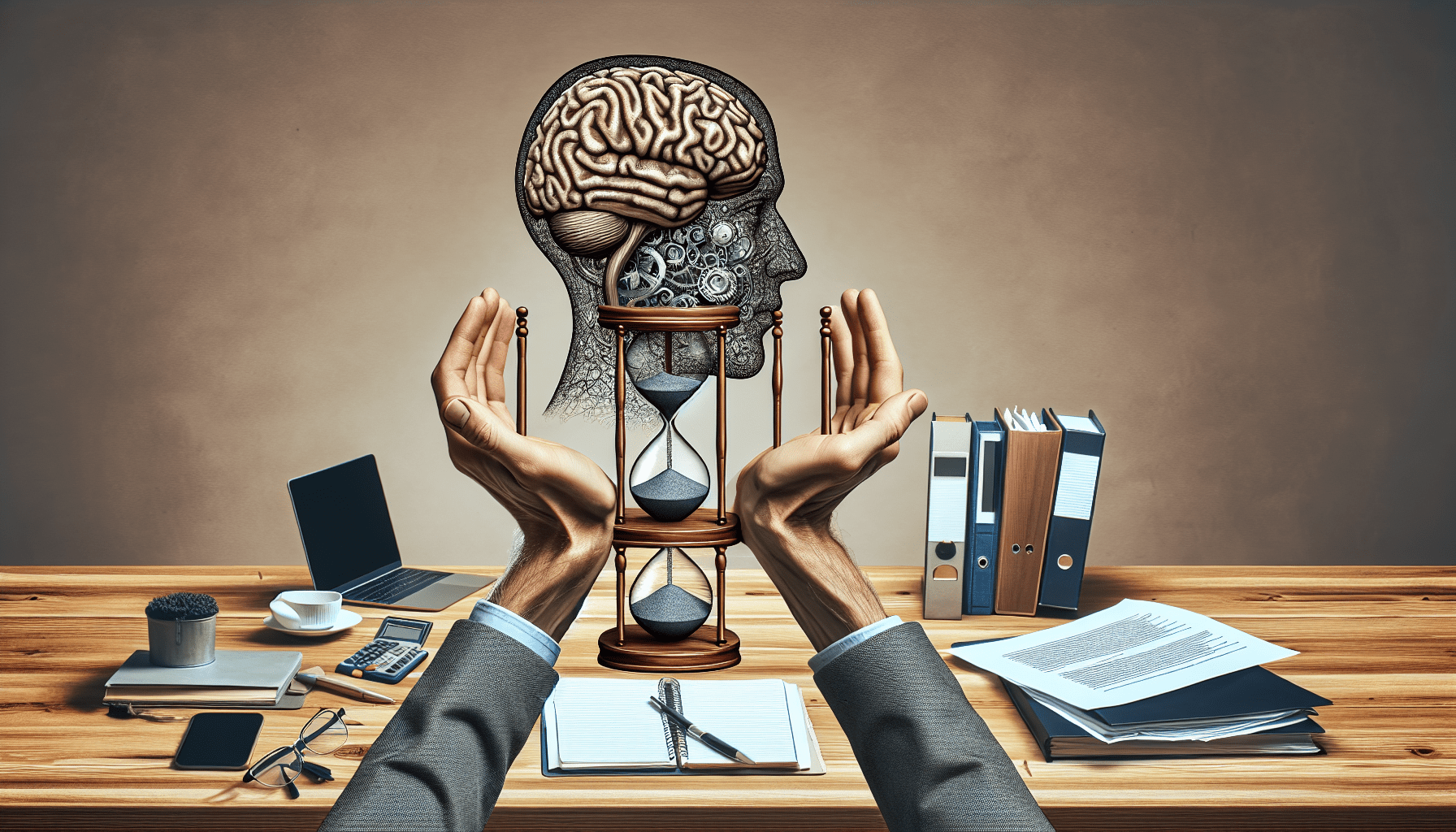Balancing Cognitive Decline and Work Performance
Navigating the challenges of maintaining work performance amid cognitive decline can be daunting, yet achievable with the right strategies. You can combat the effects of cognitive decline and still excel in your career by leveraging a mix of proactive health measures and adaptive techniques. Regular mental exercises, healthy lifestyle choices, and mindful workplace practices play pivotal roles in sustaining your professional abilities. By focusing on these areas, you can create a supportive environment that allows you to thrive despite the hurdles. Have you ever wondered if it's possible to experience cognitive decline and still perform well at work? The modern workplace demands high cognitive functioning, including memory, attention, and problem-solving skills. But cognitive decline, whether due to aging, stress, or medical conditions, can pose significant challenges. The good news is that yes, you can maintain or even improve your work performance despite these challenges. Understanding the nuances of cognitive decline and leveraging specific strategies can make a notable difference.
Understanding Cognitive Decline
Cognitive decline refers to the gradual loss of mental functions such as memory, problem-solving skills, and concentration. Although commonly associated with aging, cognitive decline can also result from various factors, including stress, poor health, and even certain medical conditions.
Types of Cognitive Decline
Understanding that cognitive decline can take on many forms will allow you to better identify and address it effectively.
- Mild Cognitive Impairment (MCI): This is often an early stage of more severe cognitive disorders, marked by memory problems, language difficulties, and impaired judgment that are noticeable but not severe enough to interfere significantly with daily life.
- Age-Related Cognitive Decline: As you age, it’s natural to experience some decline in cognitive function, but activities designed to keep your brain active can mitigate its impact.
- Dementia: This is a more severe form of cognitive decline that significantly interferes with daily functioning and is usually progressive.
Symptoms to Look Out For
Being aware of the symptoms can help in early intervention. Common symptoms include:
- Forgetfulness impacting daily tasks
- Difficulty concentrating
- Disorganization
- Poor problem-solving skills
The Workplace Challenge
Workplaces today are intellectually demanding, requiring multitasking, effective communication, and creativity. Cognitive decline can severely impact these areas, thereby affecting overall performance.
Identifying the Impact on Work Performance
To tailor strategies effectively, it’s crucial to identify how cognitive decline specifically impacts your job. Here are some areas to examine:
Memory Issues
Tasks that rely heavily on recalling information, such as names, dates, or procedures, can become challenging.
Attention Deficits
Difficulty focusing can lead to mistakes and reduced productivity, especially in tasks that require sustained mental effort.
Problem-Solving Difficulties
Trouble analyzing data or solving complex issues can impede overall performance and decision-making.
Strategies for Balancing Cognitive Decline and Work Performance
While cognitive decline poses challenges, multiple strategies can help you maintain optimal work performance.
Cognitive Training
Cognitive training programs are designed to improve mental functions through exercises that target memory, attention, and problem-solving skills.
Tip: Online platforms like Lumosity and CogniFit offer cognitive exercises that can be practiced daily.
Adaptation Techniques
Adjusting your work environment and adopting new practices can make a considerable difference.
Use of Technology
Various apps and tools can aid in managing tasks, reminders, and data storage.
| **Category | Tool** |
|---|---|
| Task Management | Trello, Asana |
| Note-taking | Evernote, OneNote |
| Reminders | Todoist, Google Keep |
Flexible Scheduling
Implement flexible working hours to accommodate periods of low and high energy, thereby maximizing productivity.
Health and Lifestyle Adjustments
Your lifestyle greatly influences cognitive functions. Adopting healthy habits can decline cognitive decline.
Balanced Diet
A diet rich in antioxidants, omega-3 fatty acids, and vitamins can improve brain health. Foods like fish, nuts, and leafy greens are beneficial.
Regular Exercise
Physical activity increases blood flow to the brain, thereby enhancing cognitive functions.
Stress Management
Chronic stress can accelerate cognitive decline. Practices such as mindfulness meditation, yoga, and deep-breathing exercises can help manage stress effectively.
Workplace Support
Having an understanding and supportive workplace can make a huge difference.
Open Communication
Discussing your condition with your supervisor can lead to accommodations that enhance your work environment and performance.
Support Groups
Joining workplace support groups or external groups can provide the emotional and practical support needed to cope with cognitive decline.
Pro Tip: Look for Employee Assistance Programs (EAPs) that offer support for mental health and well-being.
Professional Help
Consulting healthcare professionals can provide individualized strategies.
Cognitive Behavioral Therapy (CBT)
CBT can help you develop coping mechanisms and improve mental functions.
Consultation Points:
- Get a thorough neuropsychological assessment.
- Develop a structured rehabilitation plan based on your specific needs.

Combining Strategies for Maximum Effect
Employing a single strategy may yield some benefits, but integrating various approaches can offer more significant improvements.
Holistic Approach
Consider combining cognitive training, adaptation techniques, lifestyle adjustments, and professional help for a comprehensive strategy.
Example Plan
| **Action | Technique** |
|---|---|
| Daily Routine | Cognitive exercises (morning), mindful meditation (afternoon), flexible working hours |
| Diet and Exercise | Balanced meals, regular physical activity |
| Professional Support | Monthly consultation with a healthcare provider, participation in a support group |
Monitoring Progress
Keeping track of your cognitive functioning and work performance helps in adjusting strategies as needed.
Monitoring Tools:
- Use journals or digital apps to document your daily activities and cognitive health.
- Regularly evaluate your work output and feedback from supervisors.

Conclusion: Embracing Change
Balancing cognitive decline and work performance is challenging but far from impossible. By understanding the types and symptoms of cognitive decline, you can tailor strategies that suit your specific needs. Incorporating cognitive training, adaptation techniques, lifestyle changes, workplace support, and professional help can significantly enhance your cognitive functions and work performance.
Remember, the journey to balance cognitive decline with work is unique for everyone. Stay proactive, communicate openly, and continually adapt to find what works best for you. You have the power to not only manage cognitive decline but also excel in your professional life.



